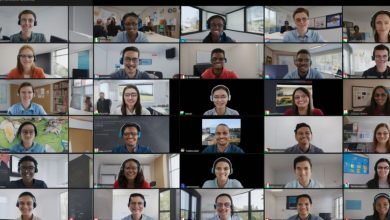Work and Travel Exchange: Earning While Exploring Abroad
Imagine earning income while immersing yourself in a vibrant new culture, exploring historic landmarks during your free time, and building a network of international friends—all on a budget that makes sense for students and young professionals. A work-and-travel exchange program offers this unique opportunity, combining part-time jobs abroad with cultural experiences that transform your worldview. In this article, you’ll discover how a work-and-travel exchange functions, what it takes to choose the right program, how to navigate legal requirements and budgeting, and the skills you’ll develop along the way. By the end, you’ll have a clear roadmap for earning while exploring abroad and returning home with invaluable experiences on your resume.
Understanding Work-and-Travel Exchange Programs
Definition and Core Components
What Is a Work-and-Travel Exchange?
A work-and-travel exchange is a structured program that allows participants—typically students, recent graduates, or young professionals—to travel to another country under a temporary visa, secure short-term employment, and live there for a set period. Unlike traditional tourism, these exchanges blend earning opportunities with cultural immersion. Participants often work in hospitality, agriculture, or seasonal industries while engaging in local traditions and making lasting connections.
Eligibility Criteria
Most work-and-travel exchange programs require participants to meet specific criteria:
-
Age Requirements: Usually 18 to 30 years old, though some destinations extend eligibility to age 35.
-
Student or Recent Graduate Status: Many visas stipulate that applicants must be enrolled in a post-secondary institution or have graduated within the past two years.
-
Language Proficiency Level: Basic conversational skills in the host country’s language are often necessary, especially for customer-facing roles.
-
Financial Requirements: Proof of sufficient funds to cover initial living expenses until the first paycheck arrives.
-
Health and Background Checks: Some countries require medical examinations and police clearance certificates.
Key Components of a Successful Work-and-Travel Exchange
-
Valid Work Visa or Exchange Permit
-
Pre-arranged Job Placement or On-site Job Fairs
-
Accommodation Options: Homestay, shared housing, hostels
-
Health and Travel Insurance Coverage
-
Local Orientation and Cultural Activities
Types of Programs and Hosts
Agency-Sponsored vs. Independent Arrangements
-
Agency-Sponsored Programs: These are packaged experiences provided by third-party organizations. Agencies typically assist with visa applications, job placement, pre-departure orientation, and sometimes even airfare. The main advantage is streamlined logistics and ongoing support, but agency fees can be higher.
-
Independent Arrangements: Participants handle every aspect themselves—obtaining the visa, finding a job, and securing housing. This DIY approach can be more cost-effective but requires thorough research and proactive networking. The trade-off is less hand-holding, so you must be prepared to troubleshoot challenges independently.
Host Structures
-
Homestays with Local Families: Living with a host family accelerates language learning and cultural immersion. Hosts often provide meals, guidance on local customs, and a supportive environment for first-time travelers.
-
Shared Apartments/Hostels with Other Participants: Many cities have shared apartments or dedicated hostels for exchange participants. This option fosters community among peers who share similar schedules and budgets.
-
Seasonal or Resort-Based Employer Accommodations: Some employers—especially ski resorts or agricultural operations—offer on-site dormitory-style housing. These setups minimize commute times but may involve shared facilities and strict rules regarding curfews or chores.
Core Benefits and Global Skills Developed
Earning Income While Abroad
Typical Work Options
Depending on your destination, a variety of entry-level jobs are available:
-
Hospitality Roles: Working as a hotel front-desk attendant, barista, bartender, or server at cafes and restaurants.
-
Tour Guide or Adventure-Sport Instructor: If you have specialized skills (e.g., scuba diving, skiing), you might lead tours or lessons.
-
Farm Work or Agricultural Harvesting: Seasonal jobs on farms, vineyards, or fruit orchards often pay hourly wages plus overtime during peak seasons.
-
Retail and Customer Service Positions: Jobs at boutique shops, supermarkets, or local markets that require minimal formal qualifications but excellent communication skills.
Step-by-Step Guide to Securing a Part-Time Job Abroad
-
Research High-Demand Sectors in Your Destination Country
Explore which industries commonly hire exchange participants. For example, Australia often has high demand in hospitality and tourism, while New Zealand recruits seasonal workers for fruit-picking. -
Update Your Resume/CV with Relevant Hospitality or Customer-Service Skills
Highlight any previous experience—camp counselor, babysitting, volunteering—that demonstrates reliability, teamwork, and communication abilities. -
Apply Through Official Program Portals or Local Job Boards
Use the designated online portals provided by agencies or reputable local job websites. Some countries also host job fairs specifically for exchange program applicants. -
Prepare for a Virtual or In-Person Interview
Research common interview questions and practice responses. Demonstrate enthusiasm for cross-cultural exchange and willingness to learn local customs. -
Sign the Employment Contract, Confirm Wage Rates, and Understand Local Labor Laws
Before you arrive, ensure you know your pay rate, expected hours, and any probation or training periods. Familiarize yourself with minimum wage laws, overtime regulations, and rights as a temporary worker.
Cultural Immersion and Soft Skills
Cross-Cultural Communication
Working in a foreign environment pushes you to hone communication beyond vocabulary. Key facets include:
-
Active Listening in a Multilingual Environment: Paying close attention to tone, pacing, and nonverbal cues—crucial when colleagues speak with various accents.
-
Nonverbal Cues and Cultural Context Awareness: Understanding gestures, body language, and acceptable personal space. For example, a thumbs-up might be positive in some cultures but offensive in others.
By adapting to local communication styles, you become adept at conveying ideas clearly and respectfully, which enhances customer satisfaction and team cohesion.
Adaptability and Problem-Solving
Unforeseen challenges are part of daily life abroad. You might face a sudden schedule change, an unexpected visa renewal deadline, or a language barrier that delays simple tasks. Developing resilience involves:
-
Handling Unanticipated Challenges: Learning to navigate public-transport delays, currency conversion issues, or miscommunication with supervisors.
-
Budgeting When Wages and Cost of Living Fluctuate: If your paycheck is delayed, you must adjust spending habits immediately—perhaps cooking meals instead of dining out for a week.
Overcoming small setbacks builds self-assurance. You learn to remain calm under pressure, find creative solutions, and remain resourceful—skills highly valued by international employers.
Building an International Network
A work-and-travel exchange places you among people from all corners of the globe—coworkers, fellow participants, and local community members. Networking benefits include:
-
Friendships with Coworkers from Diverse Backgrounds: Collaborating closely on team tasks fosters camaraderie and cultural curiosity.
-
Professional Contacts for Future Global Opportunities: A supervisor impressed by your work ethic might later offer recommendations or even remote freelance projects.
-
Cultural Exchange Events: Participating in community festivals, language exchanges, or local volunteering activities introduces you to potential mentors and lifelong friends.
The network you cultivate abroad often leads to unexpected career or travel opportunities down the line.
Selecting the Right Program and Destination
Aligning Goals with Program Features
Define Your Objectives
Before committing to a work-and-travel exchange, clarify your primary goals:
-
Maximizing Earnings: Prioritize destinations with higher minimum wages and lower taxes.
-
Improving Language Skills: Choose countries where immersion opportunities are plentiful—homestays, local classes, or volunteer programs.
-
Cultural Sightseeing: Opt for locations close to tourist attractions or natural wonders, even if wages are slightly lower.
-
Academic Credit or Professional Development: Seek programs endorsed by your university or those offering structured mentorship.
Matching Your Priorities to Program Offerings
Use this checklist to ensure the program aligns with your objectives:
-
High Wage Potential? Look for destinations where hospitality or agriculture roles exceed local living costs.
-
Language Immersion? Select programs with homestay placements and mandatory language workshops.
-
Cultural Activities? Confirm if the program organizes weekend excursions, local festivals, or volunteer projects.
-
Credit Transfer? Verify that your home institution will approve credits for courses or internships completed abroad.
Choosing a program that mirrors your objectives ensures a fulfilling experience without unexpected compromises.
Destination Comparison
Cost of Living vs. Wage Rates
Understanding local expenses is vital for budgeting. Below is a comparative overview:
| Destination | Average Hourly Wage | Approx. Monthly Rent | Local Transportation Cost | Visa Application Fee |
|---|---|---|---|---|
| United States | $12–$15 | $700–$1,000 | $100–$150 | $500 |
| Australia | AUD 18–AUD 22 | AUD 800–AUD 1,200 | AUD 150–AUD 200 | AUD 450 |
| Germany | €9–€12 | €600–€900 | €80–€120 | €75 |
| Japan | ¥900–¥1,100 | ¥50,000–¥80,000 | ¥10,000–¥15,000 | ¥30,000 |
High-wage destinations like Australia require higher upfront fees and living costs, whereas Germany balances moderate wages with lower rent. Japan’s initial visa fees and living expenses tend to be steeper, but demand for English tutors can yield competitive pay.
Cultural and Language Considerations
-
Language Requirements: Some roles demand fluency in the local language (e.g., customer service in Japan), while others only require basic conversational skills (e.g., back-of-house restaurant work in the U.S.).
-
Work Schedules and Norms: In Spain, afternoon siestas can affect store hours; in Japan, long workdays and strict hierarchies are common. Research local work customs to adapt seamlessly.
-
Social Etiquette: Understanding local customs—tipping in the U.S. versus no tipping in Japan—prevents misunderstandings and builds rapport with coworkers and customers.
Aligning your language skills and cultural adaptability with your chosen destination ensures smoother integration and greater job satisfaction.
Visa, Legal, and Logistical Requirements
Work Visa and Permit Essentials
Common Visa Categories for Work-and-Travel
-
J-1 Visa (USA): Designed for exchange visitors, including the Summer Work Travel category, which allows students to work in seasonal jobs for up to four months.
-
Working Holiday Visa (Australia, New Zealand, Canada): Intended for young travelers to work and holiday for up to one year. Requirements vary by country and bilateral agreements.
-
Seasonal Worker Visa (Varies by Country): Often tied to agricultural harvests or resort seasons, granting temporary employment to meet labor shortages.
Application Process Overview
-
Verify Eligibility
Confirm age, citizenship, and educational status align with visa requirements. Each country maintains specific quotas and eligibility windows. -
Complete the Online Application and Submit Required Documents
Gather passport photos, bank statements, medical records, and proof of enrollment. Upload scanned copies to the official portal. -
Pay Visa Fee and Schedule Biometric Appointment (If Required)
Fees range from $75 (Germany) to over $500 (USA), depending on visa type and processing expedite requests. -
Await Approval
Processing times vary by consulate workload but generally take four to eight weeks. Plan to apply at least three months before your intended departure.
How Long Does a Working Holiday Visa Take?
Processing times vary by country and consular workload but typically range from four to eight weeks. Always apply at least three months before your intended departure date to account for delays and additional document requests.
Insurance, Health, and Safety
Mandatory Health Insurance Coverage
Most countries require participants to carry valid health insurance that meets minimum coverage amounts. When comparing providers, consider:
-
Trip Cancellation and Interruption
-
Emergency Medical Evacuation
-
Repatriation of Remains
-
Coverage Limits for Pre-existing Conditions
Ensure your plan covers the entire duration of your stay and includes 24/7 multilingual customer support. Keep a copy of the insurance policy and emergency contact numbers at hand.
Pre-Departure Medical Checkups
Depending on your destination, you may need:
-
Required Vaccinations
-
For example, yellow fever vaccination is mandatory for certain tropical regions.
-
-
General Health Examination
-
A basic physical exam and blood tests to confirm fitness, especially if your role involves strenuous physical activity (e.g., farm work).
-
-
Mental Health Considerations
-
Some programs recommend access to counseling services if you experience culture shock or homesickness.
-
Completing medical checks before departure prevents visa rejections and ensures you remain healthy throughout your exchange.
Accommodation Planning
Homestay vs. Shared Housing vs. Hostels
-
Homestays: Foster intimate cultural exchanges with host families who provide meals and guidance on local customs. Costs can be higher, but you gain a built-in support network.
-
Shared Apartments/Hostels: Often the most affordable option, especially when splitting rent with multiple participants. Some hostels offer discounted long-term stays with communal kitchens and social events.
-
On-Site Employer Accommodations: Common in seasonal resorts or farms, where you live alongside coworkers in dormitory-style rooms. These may feel isolating but can significantly reduce commuting time and utility costs.
Booking Strategies
-
Download Local Housing Apps: In Australia, platforms like Flatmates or Gumtree list short-term sublets. In Europe, apps like WG-Gesucht help you find roommates in shared apartments.
-
Avoiding Scams:
-
Never send money before verifying the legitimacy of listings.
-
Use video calls to tour accommodations and meet landlords or roommates virtually.
-
Check online reviews and ask for written confirmation of lease terms.
-
Secure housing before you arrive to minimize stress and focus on job interviews and cultural orientation upon landing.
Budgeting and Financial Planning
Estimating Total Costs
Pre-Departure Expenses
-
Visa Fees: Ranging from $75 to over $500 depending on the destination.
-
Airfare: Book flights early and monitor price-tracking tools to find deals.
-
Insurance: Plan for $300–$800 for a comprehensive annual international policy.
-
Initial Accommodation Deposits: Some homestays or apartments require first-and-last month’s rent upfront.
Monthly Living Expenses
-
Rent: Varies widely—approx. $700–$1,000/month for a shared apartment in a U.S. city; AUD 800–AUD 1,200 in Australian urban areas.
-
Utilities and Internet: Typically $100–$150 per month.
-
Groceries: Around $200–$300 per month if cooking at home; dining out raises costs significantly.
-
Transportation: Budget $80–$150 per month for public transit passes.
-
Leisure Activities: Reserve $100–$200 for weekend excursions, cultural events, and social outings.
Income Projections
Assuming you work 25 hours per week at the local minimum wage:
-
United States: 25 hours × $12/hour = $300/week → $1,200/month (pre-tax).
-
Australia: 25 hours × AUD 18/hour = AUD 450/week → AUD 1,800/month (pre-tax).
-
Germany: 25 hours × €10/hour = €250/week → €1,000/month (pre-tax).
-
Japan: 25 hours × ¥1,000/hour = ¥25,000/week → ¥100,000/month (pre-tax).
Keep in mind taxes, mandatory social contributions, and visa-related fees, which may reduce your net income by 15–25%.
Budgeting in a High-Cost vs. Low-Cost Destination
-
High-Cost City Example (Sydney, Australia)
-
Rent: AUD 1,000+; Utilities: AUD 150; Transportation: AUD 200
-
Weekly Earnings Must Cover at Least AUD 1,350 Before Tax
-
-
Low-Cost City Example (Berlin, Germany)
-
Rent: €700; Utilities: €100; Transportation: €80
-
Weekly Earnings at €10/hour, 25 hours/week (Approximately €1,000/Month)
-
In Sydney, you may need to work closer to 30–35 hours per week to break even, whereas in Berlin, 25 hours may cover essentials, allowing for occasional savings.
Money-Saving Tips Abroad
Cooking vs. Dining Out
-
Buy Local, Seasonal Produce: Markets and neighborhood farmers’ stalls often sell fresh produce at half the supermarket price.
-
Batch Cooking: Prepare meals for multiple days—stews, rice bowls, and pasta dishes store well in shared refrigerators.
-
Replace Imported Ingredients: Instead of imported cheese or specialty grains, opt for local substitutes that are equally nutritious and far more affordable.
Public Transport Hacks
-
Monthly or Semester Passes: Most cities offer discounted monthly cards for students or youth under a certain age—saving 20–30% over single fares.
-
Off-Peak Travel: Traveling outside rush hours can cut costs if your employer offers flexible schedules.
-
Ride-Sharing and Carpooling Apps: In regions where public transit is unreliable, apps like BlaBlaCar or local equivalents provide cheaper door-to-door options.
Part-Time Side Hustles
-
Online Freelancing: Teach English online, freelance translate documents, or offer virtual tutoring. Platforms like Upwork or Fiverr can supplement local earnings.
-
Seasonal Gigs: Work at local festivals, holiday markets, or temporary event staff positions—for instance, concert line management or promotional brand ambassador roles.
-
Local Tutoring or Workshops: If you have specialized skills (music, sports coaching, art), offer evening classes to neighbors or fellow students.
Diversifying income sources helps buffer against unexpected job loss or shifts in local demand.
Preparing for Day-to-Day Life Abroad
Cultural Etiquette and Workplace Norms
Local Workplace Dress Codes and Schedules
-
USA: Casual business attire is standard in hospitality; uniforms may be provided.
-
Japan: Business casual with more conservative colors—dark trousers or skirts and collared shirts.
-
Australia: Outgoing coastal towns often allow relaxed attire, but urban cafes may expect neat, ironed uniforms.
Understanding local expectations prevents unintentional offenses and helps you blend in quickly.
Respecting Local Holidays and Traditions
-
Golden Week in Japan: A cluster of national holidays when many businesses close—plan for potential downtime?
-
Oktoberfest in Germany: While beer halls buzz with activity, some retail shops shut early—know event dates to maximize both work and leisure.
-
Christmas Shutdown in Australia: Many businesses close between December 25 and January 1, affecting work availability during the summer season.
Top 5 Cultural Etiquette Tips for Working Abroad
-
Learn Basic Greetings and Polite Phrases in the Local Language
-
Observe How Colleagues Greet Each Other—Handshake, Bow, or Cheek Kiss
-
Arrive a Few Minutes Early to Show Respect for Punctuality Norms
-
Ask for Feedback on Your Performance Rather Than Waiting for Criticism
-
Participate in Local Social Activities (e.g., Communal Meals, Sports) to Build Rapport
Embracing local etiquette fosters goodwill, eases your integration, and often leads to better feedback from supervisors.
Safety and Emergency Preparedness
Registering with Your Embassy or Consulate
-
Emergency Alerts: Receive real-time notifications on political unrest, natural disasters, or health advisories.
-
Crisis Assistance and Evacuation: In extreme circumstances, registered citizens can access government-led evacuation efforts or emergency shelter information.
-
Document Recovery: If your passport is lost or stolen, embassy assistance expedites replacements.
Register online before departure and update your local address once you arrive.
Local Emergency Numbers and Protocols
-
USA: Dial 911 for police, fire, or medical emergencies.
-
Australia: Dial 000 for immediate assistance; 112 works on mobile phones.
-
Europe (EU): Dial 112 to reach police, fire, or ambulance services in any EU country.
Know the relevant number and keep a list of local hospitals, poison control centers, and 24/7 hotlines.
Staying Connected
-
Affordable Local SIM Cards: Prepaid plans often include data, texts, and calls at significantly lower rates than international roaming.
-
Wi-Fi Access: Many hostels, cafes, and public libraries offer free Wi-Fi—download maps and essential apps before you leave home.
-
Recommended Travel Apps:
-
Navigation: Google Maps, Citymapper, or local transit apps.
-
Translation: Google Translate with offline language packs.
-
Safety Alerts: Smart Traveler Enrollment Program (STEP) for U.S. citizens, Smartraveller app for Australians.
-
Maintaining reliable communication safeguards you in emergencies and helps you stay organized.
Measuring Success and Building a Post-Exchange Portfolio
Tracking Personal and Professional Growth
Setting SMART Goals Before Departure
-
Specific: “Reach intermediate conversational fluency in Spanish to handle customer interactions at a Madrid café.”
-
Measurable: “Hold a five-minute dialogue without resorting to a dictionary.”
-
Achievable: “Attend local language exchange meetups twice a week.”
-
Relevant: “Improve speaking skills to support a future career in international marketing.”
-
Time-bound: “Achieve this level of fluency within three months of arrival.”
Establishing clear objectives helps you focus on outcomes and track progress.
Weekly Self-Assessment Logs
Document your experiences at the end of each week:
-
New Responsibilities: List tasks you mastered—operating espresso machines, handling cash registers, or leading a team during peak hours.
-
Challenges Overcome: Detail how you navigated transportation strikes, managed difficult customers, or resolved scheduling conflicts.
-
Cultural Insights Gained: Note novel traditions, idiomatic expressions, or local customs that you now understand.
These logs become a valuable reference when you update your resume and prepare for future interviews.
Creating a Showcase of Your Experience
Collecting Official Certificates and References
-
Work Performance Evaluations: Ask supervisors to provide written letters attesting to your punctuality, communication skills, and teamwork.
-
Language Course Certificates: If you take formal classes, save your transcripts or diplomas showing proficiency levels achieved (e.g., CEFR A2, B1).
-
Volunteer or Community Service Verifications: Document hours and tasks completed if you engaged in local outreach programs.
Official documents validate your achievements and enhance your credibility with prospective employers.
Developing a Digital Portfolio
-
Blog Posts or Vlogs Documenting Daily Life: Share anecdotes, cultural comparisons, and lessons learned to illustrate growth and adaptability.
-
LinkedIn Articles Summarizing Key Takeaways: Write a short essay highlighting how “Work-and-Travel Exchange Jobs Enhanced My Global Communication Skills” or “Lessons in Resilience from Seasonal Farm Work.”
-
Visual Evidence: Create a photo gallery of work environments, group projects, and cultural excursions—present a well-rounded view of your experience.
A multimedia portfolio showcases your ability to communicate and adapt creatively, giving recruiters tangible proof of your skills.
Leveraging Experience for Future Opportunities
Translating Skills for Potential Employers
Frame your achievements in terms employers understand:
-
“Managed a multicultural team of 10 coworkers during peak tourist season” instead of “worked on a farm.”
-
“Negotiated with local suppliers in Spanish to secure bulk produce at 15% below market rates” instead of “worked at a fruit stand.”
-
“Coordinated daily cash reconciliations in a busy café serving 200+ customers a day” rather than “barista duties.”
Emphasize measurable outcomes—cost savings, customer satisfaction improvements, or leadership responsibilities—when highlighting your work-and-travel exchange experience.
Networking and Alumni Groups
Join communities that keep the momentum going:
-
Program-Specific Alumni Associations: Many exchanges maintain alumni networks that host reunions, webinars, and job boards.
-
LinkedIn Groups Focused on Working-Holiday Visa Holders: Engage in discussions, share advice, and learn about new opportunities in your host country or globally.
-
Local Expat and International Meetup Events: Attend cultural festivals, language exchange nights, and professional networking gatherings to stay connected and find mentorship opportunities.
Sustaining these connections often leads to remote collaborations, job referrals, and insights into future exchange possibilities.
Case Studies and Success Stories
Student Perspective: Summer Barista in Vancouver
A university student from Brazil secured a J-1 Summer Work Travel visa and landed a barista position at a popular coffee shop in downtown Vancouver. Earning CAD 15 per hour, she:
-
Mastered the art of espresso pulling, learning to balance customer service with high-volume orders.
-
Bonded with coworkers from Canada, Switzerland, and Japan, improving her English fluency by conversing daily.
-
Used weekends to explore local hiking trails and document her experiences on a personal travel blog.
Upon returning home, she leveraged her work ethic and global network to secure a marketing internship with a Brazilian coffee exporter, crediting her exchange experience for her improved communication skills and cultural understanding.
Young Professional: Seasonal Farm Worker in New Zealand
A recent engineering graduate from India joined a six-month work-and-travel exchange in New Zealand under a Working Holiday Visa. He:
-
Lived in communal farm housing alongside co-workers from Australia, Germany, and South Korea.
-
Worked early-morning harvest shifts—picking kiwifruit and pruning vines—to earn NZD 18 per hour.
-
Saved 60% of his monthly wages, which he used to fund a solo backpacking trip across the South Island during downtime.
-
Organized a weekend soccer match among farm staff, fostering team spirit and leadership skills.
His résumé now boasts project management experience, cross-cultural teamwork, and financial discipline—traits that led to a full-time position at a renewable-energy startup in Auckland after his exchange ended.
Gap-Year Traveler: English Tutor in Japan
A gap-year participant from Spain obtained a three-month work-and-travel placement as an English tutor at a community center in Osaka. She:
-
Developed and delivered conversational English lessons to local students, tailoring activities to their interests (e.g., teaching English through manga).
-
Immersed herself in local festivals—like Tanabata and Obon—to practice language skills in authentic settings.
-
Documented cultural observations in a series of LinkedIn articles titled “Bridging Cultures Through Language: My Osaka Experience.”
After returning to Spain, she launched a freelance online English tutoring service targeting Japanese clients. Her in-country teaching experience allowed her to charge premium rates and expand her client base across Asia.
Frequently Asked Questions
-
What is the minimum age for a work-and-travel exchange?
Most programs require participants to be at least 18; some countries cap the maximum age at 30 or 35. Always check specific host-country guidelines before applying. -
Do I need prior work experience to qualify?
Not usually. Many roles—such as hospitality, farm work, or retail—hire entry-level participants. Employers value reliability, communication skills, and a willingness to learn more than formal experience. -
How much money do I need before departure?
Funding requirements vary by country. Generally, plan to have enough savings to cover your first one to two months of living expenses, including rent, utilities, groceries, and transportation, before you receive your first paycheck. -
Can I extend my program if I want to stay longer?
Some countries allow extensions for working-holiday visas up to a defined period; others require you to return home and reapply. Always verify local immigration policies and timing constraints before making plans. -
What happens if I lose my job or housing mid-program?
Agency-sponsored programs often provide support hotlines and alternative placements in such scenarios. Independent participants should maintain an emergency fund, identify backup housing options (e.g., hostel networks), and have embassy or consulate contacts for assistance.
Conclusion
A work-and-travel exchange offers more than just a paycheck—it equips you with cross-cultural communication skills, adaptability, and a global network that employers value. By defining your objectives, selecting the right destination, and preparing carefully for visa, budgeting, and cultural challenges, you can transform a temporary program into a life-changing adventure. Document your achievements, collect certificates, and build a digital portfolio to showcase your skills. Whether you’re brewing coffee in Canada, harvesting orchards in New Zealand, or tutoring English in Japan, each experience adds depth to your personal and professional story. Embrace the opportunity to earn while you explore, and return home ready to leverage your global skills in any career path you choose.
Published on: 4 de June de 2025








